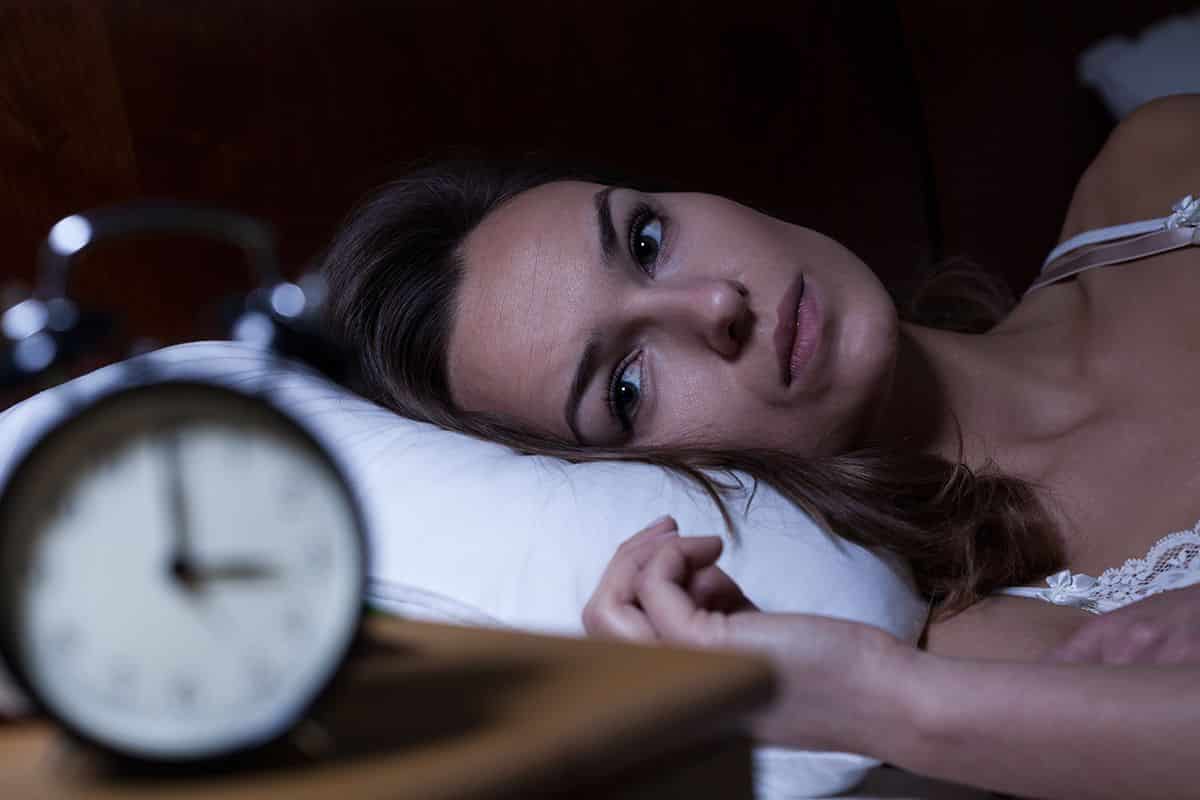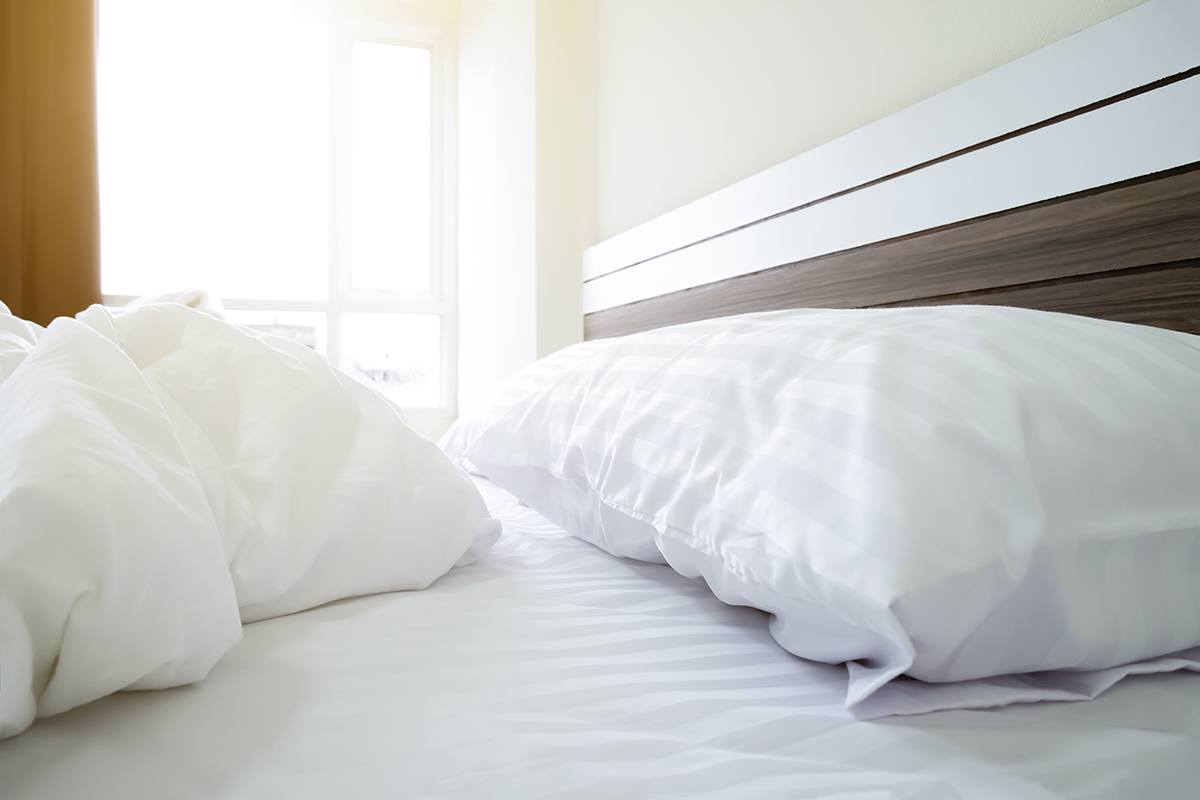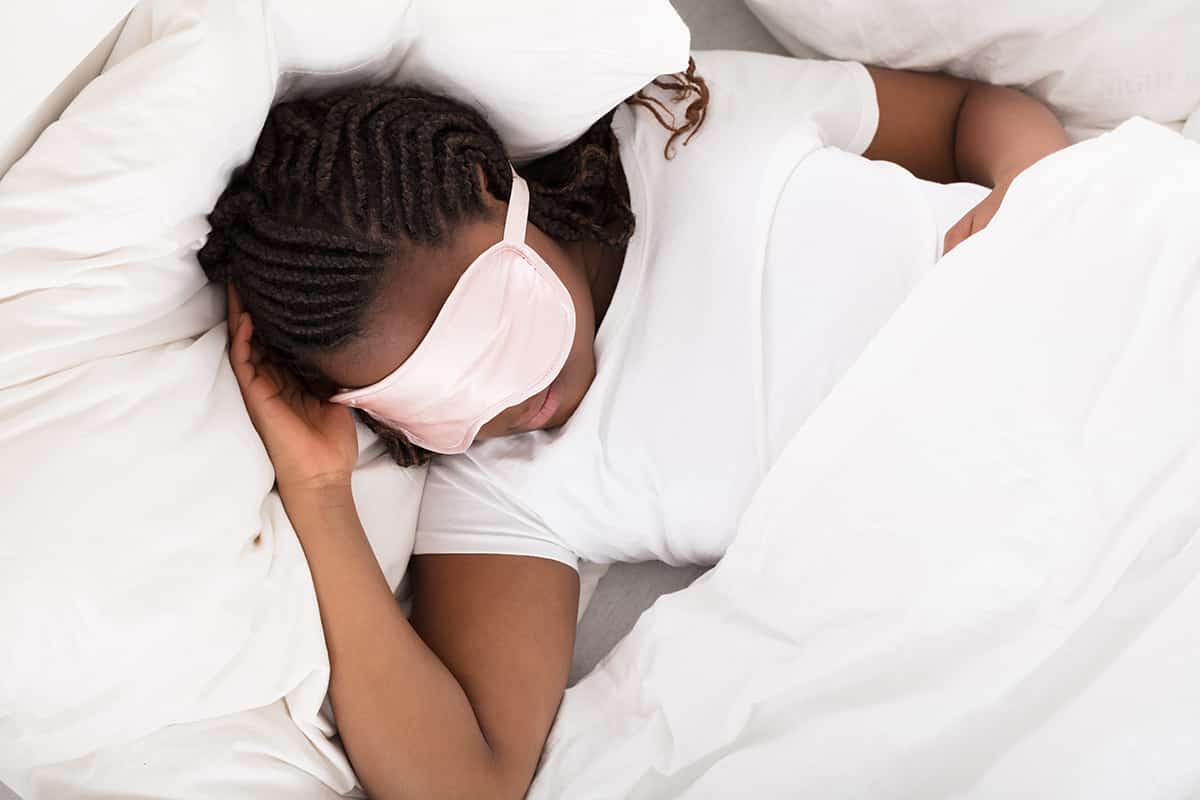When someone is on the road, getting a good night’s sleep can be difficult no matter how tired they are — new environments are always tough to get used to.
Why do some people find it difficult to sleep well when they aren’t in their own home? Scientists may have figured out both why and how to sleep well when away from home. Read on!
[Editor’s Note: The information provided should not be considered a substitute for professional advice. Please consult a sleep doctor or other medical expert if one has questions related to one’s own health.]
Sleep Studies and Data Findings
A June 2017 study published in the journal Current Biology suggested that we sleep with one-half of our brain alert during our first night in a new place.
Researchers at Brown University monitored people sleeping during their first night in a new environment, measuring brain activity on both sides of their brains. They occasionally played small beeping noises to see how the brain responded. The results showed that sounds played on the left side of the brain woke people up more often.
But when the researchers repeated the experiment for the second night, noises on the left side didn’t wake people up as often. They hypothesize that the brain remains alert during the first night in a new space, but that it’s less vigilant on the second night.
“The environment is so new to us, we might need a surveillance system so we can monitor the surroundings and we can detect anything unusual,” study author Masako Tamaki said in a statement.
In other words: One-half of the brain acts as a kind of “night watchman,” looking out for any potential dangers. Because the brain remains more alert than usual, a person may sleep poorly or wake up feeling groggy the next day.
4 Tips to Sleeping Well When Away from Home
Luckily, there are some ways to make sleeping in a new place more comfortable. Here are four things someone can do to sleep well when away from home!
Follow an evening routine as best as possible.
It might not be possible to follow one’s usual schedule to a T, but do what’s possible, signaling to the body that it’s time to wind down and rest. Don’t fall into any bad habits like scrolling through the phone right before bed just because it’s potentially uncomfortable in a new place.
RELATED: The Ideal Time to Go to Bed
Use a sleep mask.
If the room’s layout is unfamiliar, or there’s a light source that’s bothersome, blocking all that out with a light-blocking eye mask will put a person more at ease. Plus, keeping one’s sleeping space as dark as possible is always a good thing.
RELATED: The 5 Best Sleep Masks
Try earplugs or white noise.
Blocking out unfamiliar sounds can be a huge help, whether that’s city traffic, nature noises, or the dulcet tones of a friend’s snoring. If one usually sleep listening to a certain sound, try the best to recreate it.
RELATED: Best Earplugs for Sleeping
Adjust the room temperature.
This can be tricky if staying with friends or family at their home, but see what can be adjusted. Turn on a fan or open a window if the room is too toasty, and ask for an extra blanket or layer on warm PJs if it’s too cold to sleep.
Remember that generally speaking, cooler temperatures are better for good sleep!
How to Sleep Well When in a Hotel Room
Here are some additional tricks for making a hotel stay as restful as possible!
Ask the front desk for a quiet room.
Ask if it’s at all possible to get a room away from any event spaces, in-house bars, and restaurants. That way people can avoid late-night noise, as well as the sounds of guests coming and going.
Ask for pillow options.
If you’re picky about pillows, and didn’t bring one from home, ask for options. Lots of hotels will have different types of pillows, which may be stashed in a broom closet or available from the front desk. Some hotels, like The Benjamin Hotel in NYC, even have “pillow menus” available for travelers to peruse! If you need a hypoallergenic pillow, make sure to ask about that before traveling — you may need to put in a special request, or even order your own.
Ask for extra blankets, comforter, or fans.
While most hotel rooms will have a thermostat to create the perfect sleep temperature, you can always call downstairs for a backup fan or extra comforter if you need one.
Make your room feel as much like home as possible.
Whether that’s wearing your favorite pajamas, bringing a small photo of the family to keep on the nightstand, or taking a bubble bath with your favorite scented products.
Hang up the “do not disturb” sign.
Hotel cleaning schedules differ, and people don’t want to be woken up before they’re ready — especially if they’re in a different time zone.
Try to avoid eating or working in bed.
While it can be so tempting to order room service and eat it in bed, try not to. Signal to your brain that the bed is for sleeping or sex only, and it will be easier to “wind down” once you are ready to sleep.
Stick to your routine as much as possible.
If there’s a gym, work out at your usual time. People should eat their meals according to their normal schedule (on local time, that is) and try their best to go to bed at their regular bedtime.
RELATED: Best Hotel Mattresses
Featured image: stefanolunardi/Shutterstock



